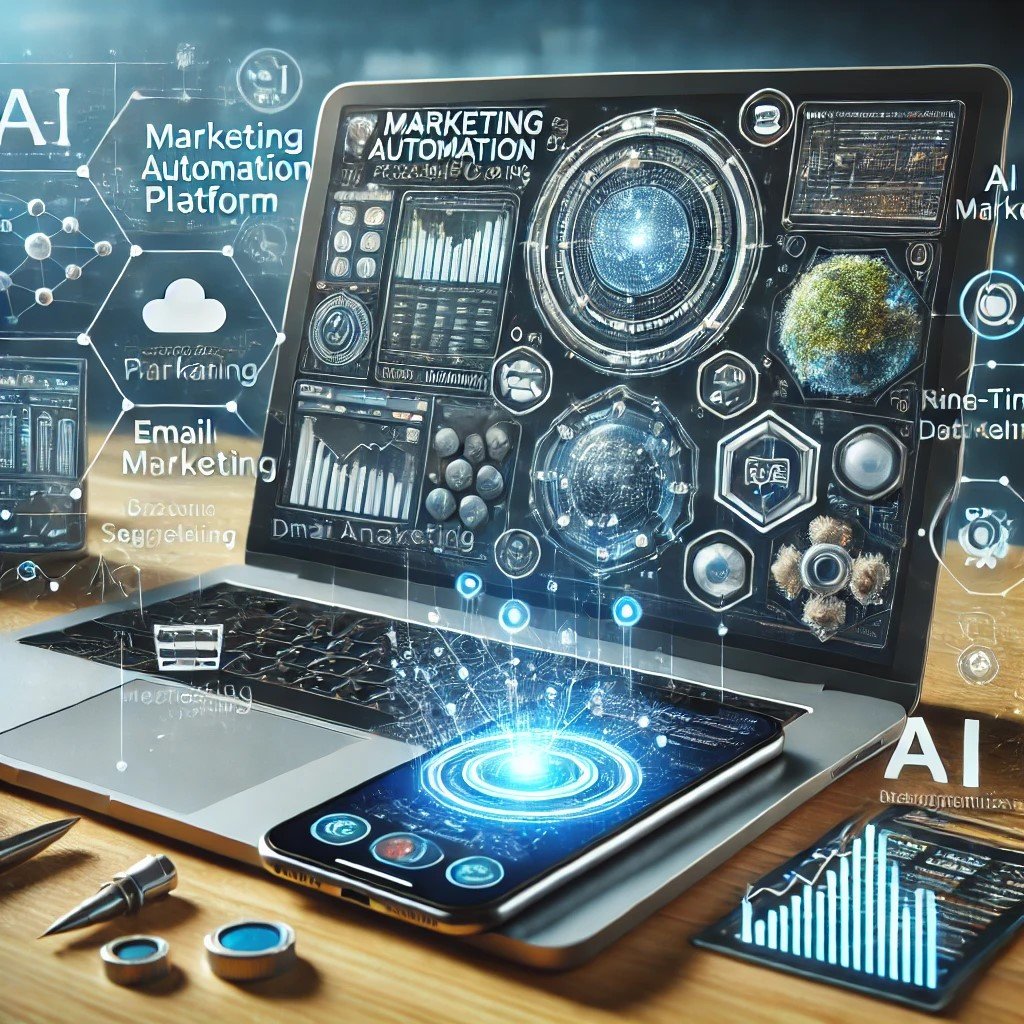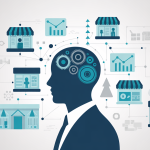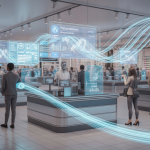
Comprehensive Report on Tools and Technologies for Personalized Marketing
Personalized marketing is the practice of tailoring marketing messages and experiences to individual customers based on their behaviors, preferences, and demographics.
In today’s highly competitive and digitally driven marketplace, personalized marketing has become a critical strategy for businesses aiming to improve customer engagement, loyalty, and conversion rates.
This report provides a detailed overview of the tools and technologies essential for executing personalized marketing, focusing on marketing automation platforms and personalization engines.
1. Marketing Automation Platforms
1.1 Overview of Marketing Automation
Marketing automation platforms are software solutions designed to automate repetitive marketing tasks, manage multi-channel campaigns, and provide personalized communication at scale.
These platforms streamline workflows, enhance customer targeting, and improve the overall efficiency of marketing efforts.
1.2 Key Features of Marketing Automation Platforms
-
Email Marketing Automation:
- Automates the creation, scheduling, and delivery of personalized email campaigns based on customer behavior and preferences.
- Example: Triggering a welcome email series for new subscribers or sending product recommendations based on past purchases.
-
Lead Scoring and Nurturing:
- Assigns scores to leads based on their interactions with the brand (e.g., website visits, email opens, form submissions) and nurtures them through personalized content until they are ready to convert.
- Example: Sending targeted content to leads who score above a certain threshold to move them further down the sales funnel.
-
Segmentation and Targeting:
- Allows marketers to segment their audience based on demographics, behavior, and other criteria to deliver more relevant and personalized messages.
- Example: Creating segments for high-value customers and tailoring promotions specifically for them.
-
Multi-Channel Campaign Management:
- Enables the coordination of personalized marketing campaigns across various channels, including email, social media, SMS, and more.
- Example: Running a synchronized campaign that sends targeted ads on social media and personalized emails to the same audience segment.
-
Analytics and Reporting:
- Provides detailed insights into campaign performance, customer engagement, and ROI, enabling marketers to optimize their strategies.
- Example: Tracking the open rates, click-through rates, and conversions of personalized email campaigns to identify areas for improvement.
-
CRM Integration:
- Integrates with Customer Relationship Management (CRM) systems to ensure a seamless flow of customer data and insights across the organization.
- Example: Synchronizing contact data between the marketing automation platform and CRM to ensure consistency in customer profiles.
1.3 Leading Marketing Automation Platforms
-
HubSpot:
- HubSpot offers a comprehensive marketing automation platform with features like email marketing, lead scoring, social media management, and CRM integration.
- Strengths: User-friendly interface, strong CRM capabilities, extensive educational resources.
-
Marketo (Adobe Experience Cloud):
- Marketo is a powerful marketing automation platform known for its robust lead management, email marketing, and multi-channel campaign management features.
- Strengths: Advanced analytics, strong integration with Adobe products, flexibility in campaign design.
-
Salesforce Marketing Cloud:
- Salesforce Marketing Cloud provides a suite of tools for email marketing, social media marketing, customer journey management, and more.
- Strengths: Strong CRM integration, powerful analytics, customizable customer journeys.
-
Pardot (Salesforce):
- Pardot, part of the Salesforce ecosystem, is focused on B2B marketing automation with features like lead nurturing, email automation, and ROI reporting.
- Strengths: Seamless Salesforce integration, advanced lead management, detailed reporting.
-
ActiveCampaign:
- ActiveCampaign offers marketing automation, email marketing, and CRM functionalities with a focus on customer experience and engagement.
- Strengths: Affordable pricing, intuitive automation builder, strong customer support.
1.4 Benefits of Marketing Automation Platforms
-
Scalability:
- Marketing automation allows businesses to scale their personalized marketing efforts, reaching a larger audience with minimal manual intervention.
-
Enhanced Customer Engagement:
- By delivering personalized and timely messages, marketing automation platforms help increase customer engagement and build stronger relationships.
-
Improved Efficiency:
- Automation reduces the time and effort required for routine tasks, allowing marketing teams to focus on strategy and creativity.
-
Data-Driven Decision Making:
- The analytics and reporting features of marketing automation platforms provide valuable insights that inform decision-making and strategy optimization.
2. Personalization Engines
2.1 Overview of Personalization Engines
Personalization engines are advanced software solutions that leverage data, machine learning, and artificial intelligence (AI) to deliver highly personalized experiences across digital channels.
These engines analyze customer data to provide real-time recommendations, dynamic content, and tailored messaging that align with individual preferences and behaviors.
2.2 Key Features of Personalization Engines
-
Real-Time Data Processing:
- Personalization engines process customer data in real time to deliver dynamic and relevant content instantly.
- Example: Showing personalized product recommendations based on a customer’s browsing history on an e-commerce site.
-
Machine Learning Algorithms:
- These engines use machine learning algorithms to analyze customer behavior, predict preferences, and optimize personalization strategies.
- Example: Continuously improving the accuracy of product recommendations by learning from customer interactions.
-
Content Personalization:
- Personalization engines customize website content, emails, and other digital experiences based on user profiles and behaviors.
- Example: Displaying personalized banners and product categories on a homepage tailored to individual visitors.
-
Behavioral Targeting:
- Targets customers based on their past behaviors, such as purchase history, browsing patterns, and interactions with marketing content.
- Example: Sending personalized offers to customers who have previously shown interest in specific products.
-
Customer Journey Mapping:
- Personalization engines track and optimize the customer journey by delivering relevant content at each stage of the customer lifecycle.
- Example: Providing tailored content to nurture leads from awareness to conversion and beyond.
-
A/B Testing and Optimization:
- These engines offer tools for A/B testing different personalization strategies to determine the most effective approach.
- Example: Testing different personalized email subject lines to see which generates higher open rates.
2.3 Leading Personalization Engines
-
Adobe Target:
- Adobe Target is a personalization engine that provides tools for A/B testing, multivariate testing, and automated personalization across web and mobile experiences.
- Strengths: Integration with Adobe Experience Cloud, powerful testing and optimization features, AI-driven recommendations.
-
Dynamic Yield:
- Dynamic Yield offers a comprehensive personalization platform that includes product recommendations, personalized emails, and dynamic content.
- Strengths: Real-time personalization, robust segmentation, strong analytics capabilities.
-
Monetate:
- Monetate is a personalization platform that enables marketers to create and deliver personalized experiences across channels like web, email, and mobile.
- Strengths: Easy-to-use interface, powerful analytics, strong support for multi-channel personalization.
-
Optimizely:
- Optimizely provides a platform for experimentation and personalization, allowing businesses to test and implement personalized experiences across digital touchpoints.
- Strengths: Advanced experimentation tools, AI-driven personalization, strong integration with other marketing tools.
-
Evergage (Salesforce Interaction Studio):
- Evergage, now part of Salesforce, offers real-time personalization and customer engagement capabilities, focusing on delivering 1:1 personalized experiences.
- Strengths: Real-time data processing, deep integration with Salesforce, advanced segmentation and targeting.
2.4 Benefits of Personalization Engines
-
Increased Conversion Rates:
- By delivering highly relevant and personalized content, personalization engines help increase conversion rates and drive revenue growth.
-
Enhanced Customer Experience:
- Personalization engines improve the customer experience by making interactions more relevant, timely, and engaging.
-
Higher Customer Retention:
- Personalized experiences build stronger connections with customers, leading to higher retention rates and brand loyalty.
-
Real-Time Adaptation:
- These engines allow businesses to adapt their messaging and content in real time based on customer behavior, improving responsiveness and relevance.
3. Integration of Marketing Automation and Personalization Engines
3.1 Synergy Between Marketing Automation and Personalization
Integrating marketing automation platforms with personalization engines creates a powerful combination that enhances the effectiveness of personalized marketing strategies.
This synergy allows businesses to:
-
Deliver Consistent Experiences Across Channels:
- By integrating these tools, businesses can ensure that personalized experiences are consistent across all customer touchpoints, including email, web, mobile, and social media.
-
Optimize Customer Journeys:
- Marketing automation platforms provide the structure for managing customer journeys, while personalization engines add a layer of individualized content that enhances the relevance and impact of each interaction.
-
Leverage Data for Personalization:
- The data collected by marketing automation platforms can be used to fuel personalization engines, ensuring that personalization strategies are based on accurate and up-to-date information.
-
Enhance Decision-Making:
- The combined insights from marketing automation and personalization platforms provide a comprehensive view of customer behavior, enabling more informed decision-making and strategy optimization.
3.2 Best Practices for Integration
-
Data Synchronization:
- Ensure that customer data is synchronized between the marketing automation platform and the personalization engine to provide a unified view of the customer.
-
Consistent Messaging:
- Maintain consistency in messaging across all channels by aligning personalization strategies with the overall marketing strategy.
-
Continuous Testing and Optimization:
- Regularly test and optimize personalization strategies to ensure they are effective and aligned with customer expectations.
-
Customer-Centric Approach:
- Focus on delivering value to the customer by ensuring that personalization efforts are genuinely relevant and add value to their experience.
3.3 Examples of Integrated Solutions
-
HubSpot and Dynamic Yield:
- By integrating HubSpot’s marketing automation capabilities with Dynamic Yield’s personalization engine, businesses can automate personalized email campaigns, website content, and product recommendations based on user behavior tracked by both platforms.
-
Salesforce Marketing Cloud and Evergage:
- Salesforce Marketing Cloud’s automation features can be combined with Evergage’s real-time personalization tools to deliver 1:1 personalized experiences across email, mobile, and web channels, ensuring a seamless customer journey.
-
Marketo and Adobe Target:
- The integration of Marketo’s marketing automation platform with Adobe Target allows marketers to automate personalized campaigns while leveraging advanced testing and personalization capabilities, creating a powerful toolset for optimizing customer engagement.
4. Challenges and Considerations
4.1 Data Privacy and Compliance
-
Regulatory Compliance:
- With increasing regulations such as GDPR and CCPA, businesses must ensure that their use of personalization engines and marketing automation platforms complies with data privacy laws.
- Example: Implementing consent management tools and ensuring that customer data is handled transparently and securely.
-
Customer Trust:
- Personalization must be balanced with respect for customer privacy to avoid the perception of intrusive marketing practices.
- Example: Providing clear opt-in and opt-out options and ensuring that personalized content is relevant and not overly invasive.
4.2 Integration Complexity
-
Technical Integration:
- Integrating marketing automation platforms with personalization engines can be complex and may require significant technical expertise and resources.
- Example: Ensuring seamless data flow between systems to prevent data silos and inconsistencies.
-
System Compatibility:
- Businesses must ensure that the tools they choose are compatible with their existing technology stack to avoid integration issues.
- Example: Evaluating API capabilities and middleware solutions to facilitate smooth integration.
4.3 Scalability
-
Scalability Challenges:
- As businesses grow, their personalization needs may become more complex, requiring scalable solutions that can handle increased data volume and complexity.
- Example: Choosing platforms that offer robust scalability features, such as cloud-based solutions with elastic computing resources.
-
Cost Considerations:
- The cost of scaling personalized marketing efforts can be significant, especially when integrating multiple platforms.
- Example: Assessing the total cost of ownership, including licensing, integration, and ongoing maintenance costs.
5. Future Trends in Personalized Marketing
5.1 AI-Driven Personalization
-
Advanced AI Algorithms:
- The future of personalization lies in AI-driven engines that can analyze vast amounts of data to deliver hyper-personalized experiences.
- Example: AI algorithms that predict customer preferences and automatically adjust marketing strategies in real time.
-
Predictive Personalization:
- Predictive analytics will play a larger role in personalization, allowing businesses to anticipate customer needs before they arise.
- Example: Recommending products or content based on predicted customer behavior rather than past actions alone.
5.2 Omnichannel Personalization
-
Unified Customer Experiences:
- The demand for consistent and personalized experiences across all channels will drive the adoption of omnichannel personalization strategies.
- Example: Delivering a cohesive experience that integrates in-store, online, mobile, and social media interactions.
-
Cross-Device Personalization:
- As customers increasingly use multiple devices, businesses will need to ensure that personalization efforts are consistent and synchronized across all devices.
- Example: Maintaining personalized recommendations and content as customers switch between their smartphones, tablets, and desktops.
5.3 Personalization Beyond Marketing
-
Personalized Customer Support:
- Personalization will extend beyond marketing into customer support, where AI and personalization engines will tailor interactions based on customer profiles and history.
- Example: Automated support systems that provide personalized solutions and proactive assistance based on customer data.
-
Personalized Product Development:
- Data-driven personalization will influence product development, with businesses creating products and services tailored to specific customer segments.
- Example: Using customer data to design and develop products that align with the preferences and needs of targeted customer groups.
Personalized marketing is essential for businesses looking to engage customers, build loyalty, and drive conversions in an increasingly competitive market.
The tools and technologies that enable personalized marketing, such as marketing automation platforms and personalization engines, are critical for executing effective strategies at scale.
By understanding the capabilities, benefits, and challenges of these tools, businesses can create more meaningful and relevant customer experiences.
As the landscape of personalized marketing continues to evolve, staying ahead of trends like AI-driven personalization, omnichannel strategies, and the integration of personalization beyond marketing will be crucial for success.
However, businesses must also navigate challenges such as data privacy, integration complexity, and scalability to fully harness the potential of personalized marketing.
This comprehensive report outlines the key tools and technologies that power personalized marketing, providing insights into their features, benefits, challenges, and future trends.
By leveraging these tools effectively, businesses can create more personalized and impactful marketing strategies that resonate with their audiences.
Back to How to Use Data Analytics Main Page


